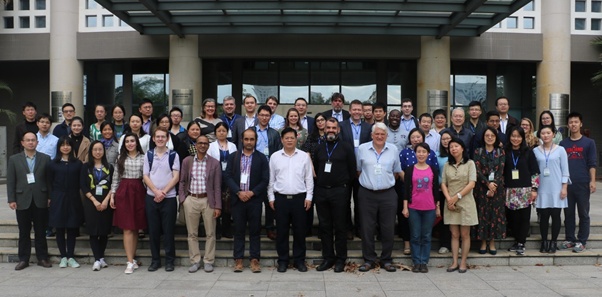Workshop - The Impact of Rapid Urbanisation on Health in Chinese Mega-Cities
15 Dec 2017In November, Amanda made a presentation at ‘The Impact of Rapid Urbanisation on Health in Chinese Mega-Cities’ workshop held in Xiamen. This workshop aimed to build collaboration and knowledge-sharing between 55 researchers from the UK and China. It was funded under the Researcher Links scheme offered within the Newton Fund, the British Council and National Natural Science Foundation of China (NSFC), and was organized by Cardiff University and the Institute of Urban Environment (Chinese Academy of Sciences).

We had keynote speeches by Professor Yongguan Zhu (Director of the Institute of Urban Environment) on ‘Chinese Perspectives of Urbanisation and Human Health’, and by Professor Terry Marsden (Director of Sustainable Places Research Institute at Cardiff University) on ‘Place-based Methods in Sustainability Science.’ Examples of presentation topics included: rural-urban migration, transport (walking, high speed rail), and air pollution (CO2, haze governance, public health, biomass burning).
For the LUCAS case study on Shanghai, this topic is important to consider Shanghai’s size and location in a mega-city region. Zhao et al. (2006) conducted a study of Shanghai from 1975-2005 and found that as a result of urbanisation, air and water pollution has increased, the average air temperature has risen – creating a heat island effect, and there has been a loss of biodiversity and agricultural land. Further, the rapid pace of this change has implications for China’s institutions (Ren 2013). These characteristics of urbanisation then have crucial insights to developing policy solutions to environmental issues in China.